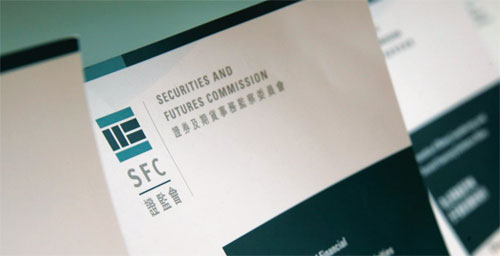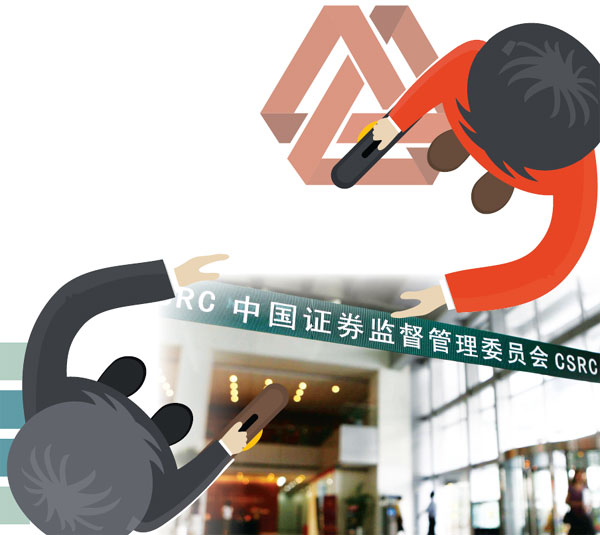Mutual benefit, singular concern
Updated: 2015-07-10 13:38
By Oswald Chan(HK Edition)
|
||||||||
Fund managers in Hong Kong must stay vigilant about future competition as the cross-border Mutual Recognition of Funds deal cannot be expected to remain exclusive forever. Oswald Chan reports.
This week saw the launch of the cross-border mutual fund recognition program. That came after the Securities and Futures Commission (SFC) of Hong Kong and the China Securities Regulatory Commission (CSRC) on May 22 signed a cooperation memorandum on the Mutual Recognition of Funds (MRF) to confirm the launch date. Fund companies are expected to start cross-border fund sales as early as the third quarter this year.
This was the first MRF arrangement signed by the mainland outside its financial jurisdiction.
Under the agreement, investment funds that meet certain eligibility requirements prescribed by the SFC and CSRC can be sold reciprocally in either market under a streamlined process for distribution.
For Hong Kong-domiciled funds to be sold reciprocally, these must be authorized by the SFC, have a track record of at least one year, not less than 200 million yuan ($32.2 million) in assets under management (AUM), not be primarily invested in the mainland financial asset market, and value of fund units sold to mainland investors must not be more than 50 percent of its AUM.
Similar rules apply to mainland funds designated for sale in Hong Kong, subject to CSRC authorization.
Fund purchases by investors on either side will be capped at an aggregate net quota of 300 billion yuan, allocated on a first-come-first-served basis. Fund managers will not be required to apply for quotas for specific funds under the MRF program.
Positive buzz
Initially only general equity funds, bond funds, mixed funds, unlisted index funds and physical index-tracking exchange traded funds will qualify for the program. Market estimates indicate that 100 Hong Kong-domiciled funds with an AUM of 300 billion yuan, and 850 mainland funds with 2 trillion yuan in AUM are eligible for cross-border sales under the MRF program.
"It provides an excellent platform to promote the advancement of the asset management industry on the mainland, which enables both places to enhance their competitiveness in the international asset management arena," Chief Executive Leung Chun-ying said after the agreement was announced.
Even though the MRF agreement is expected to spur upstream value-chain activities in the city's asset management industry, the fund industry should not be complacent, industry practitioners pointed out, citing the MRF agreement's regulatory constraints and doubts over the capability of Hong Kong as a fund domicile center.
"The first restriction in the current version of the MRF is that fund houses in Hong Kong cannot delegate management of funds to their overseas group companies," Choi Ching-yng, Asia representative office head at the Association of the Luxembourg Fund Industry (ALFI), told China Daily.
"Another regulatory constraint of the program for Hong Kong-based managers is that the value of fund shares sold to investors on the mainland cannot exceed 50 percent of the value of the fund's total assets. It is challenging for many fund managers to gather more than 50 percent of assets from the Hong Kong market," Choi said in response to a query from China Daily.
"Some ALFI members also mentioned that they would like to see more clarity on (fund) settlement and clearing in the near future - their concerns lie with the settlement currency (renminbi or Hong Kong dollar) and channel for settlement," Choi added.
"Hong Kong is positioning itself as a fund domicile in Asia but it is still a relatively new player in this particular sector," Arendt & Medernach's Hong Kong office head Stephane Karolczuk told China Daily. Arendt & Medernach is a Luxembourg-based law firm providing legal advice and regulatory solutions for investment funds and asset managers.
"The taste for investment fund products greatly varies in the Asian region, and regulations applicable to funds in various economies in Asia are also very diverse," Karolczuk added.
Another key concern is that Hong Kong should not assume the MRF agreement would be exclusive forever. Some financial analysts said Hong Kong needs to have a longer exclusive status for MRF or it will fail in its goal to become a world fund "manufacturer".
Direct rivalry
Reuters reported in February last year that Luxembourg is pushing for a deal on mutual recognition of investment funds with the Chinese mainland, to boost the cementing of Luxembourg's role as the premier offshore renminbi investment center in Europe. If Luxembourg and authorities on the Chinese mainland reach a similar agreement, this would put the tiny European nation in direct competition with Hong Kong.
"We see this as a first step on the mainland opening its fund investment industry to outside investors and we expect that, in time, other products from Europe and Luxembourg will also gain access to the Chinese market based on a similar mutual recognition arrangement," Arendt & Medernach's Karolczuk said.
However, the Hong Kong government has reassured the city that it can enjoy its exclusive MRF status for a "period of time", Secretary for Financial Services and the Treasury Ceajer Chan Ka-keung said.
"We have discussed with CSRC that we wish the MRF agreement could be exclusive in the foreseeable future. The CSRC can sign more MRF agreements with other financial jurisdictions only after CSRC assessment (of the effectiveness of such agreements). The central government is supporting Hong Kong," Chan told financial reporters in Hong Kong in May.
"Hong Kong and the mainland will review the MRF program operation mechanism one year later. I would say five years would be an appropriate time frame to evaluate the effectiveness of the MRF program," Chan added.
Bruno Lee Kam-wing, chairman of the Hong Kong Investment Funds Association, also agreed that the fund industry in Hong Kong should gear up to train more specialized professionals to retain the city's competitiveness in the sector after the signing of the MRF agreement.
"Currently Hong Kong fund managers are more proficient in investing in Asian asset markets," Lee told China Daily. "The city needs to train more fund investment professionals to conduct in-depth market research and investment decisions regarding the US and European equity and bond markets."
But Hong Kong can enjoy the first mover advantage for the time being, he said. "It will take time for the mainland to resolve regulatory hurdles before it can sign MRF agreements with other economies," Lee said. "Even if the mainland signs such an agreement, demand for mainland-domiciled investment funds may not be high in areas other than Hong Kong."
"In addition, Hong Kong has the largest offshore renminbi liquidity in the world, which can attract more mainland fund managers to put up their funds for sale in the city (due to a more robust foreign exchange transaction mechanism between the renminbi and Hong Kong dollar)," Lee added.
"We believe that mainland demand for diversified investment products such as funds will be so large that there will be room for the various types of products Luxembourg, Hong Kong and possibly other fund jurisdictions have to offer," noted Karolczuk at Arendt & Medernach.
Contact the writer at oswald@chinadailyhk.com


(China Daily USA 07/10/2015 page6)

 Beijing roasts in high temperature
Beijing roasts in high temperature
 The world in photos: July 6-12
The world in photos: July 6-12
 Djokovic downs Federer to win third Wimbledon crown
Djokovic downs Federer to win third Wimbledon crown
 Top 10 Chinese companies by profit margin in 2015
Top 10 Chinese companies by profit margin in 2015
 No room in the pool
No room in the pool
 Top gaokao scholars saddle up for a ride in the park
Top gaokao scholars saddle up for a ride in the park
 Girl who shoots straight with bow and arrow
Girl who shoots straight with bow and arrow
 Ten photos you don't wanna miss - July 10
Ten photos you don't wanna miss - July 10
Most Viewed
Editor's Picks

|

|

|

|

|

|
Today's Top News
Mexico: Drug lord 'El Chapo' Guzman escapes, manhunt begins
Lawyers held for 'trying to influence verdicts'
Top court official under inquiry for graft
It is wrong to label illegal immigrants refugees: Opinion
Leaders agree on partnership blueprint
New Development Bank launched in Ufa
IMF keeps 6.8% China growth view
Leaders agree on partnership blueprint
US Weekly

|

|






